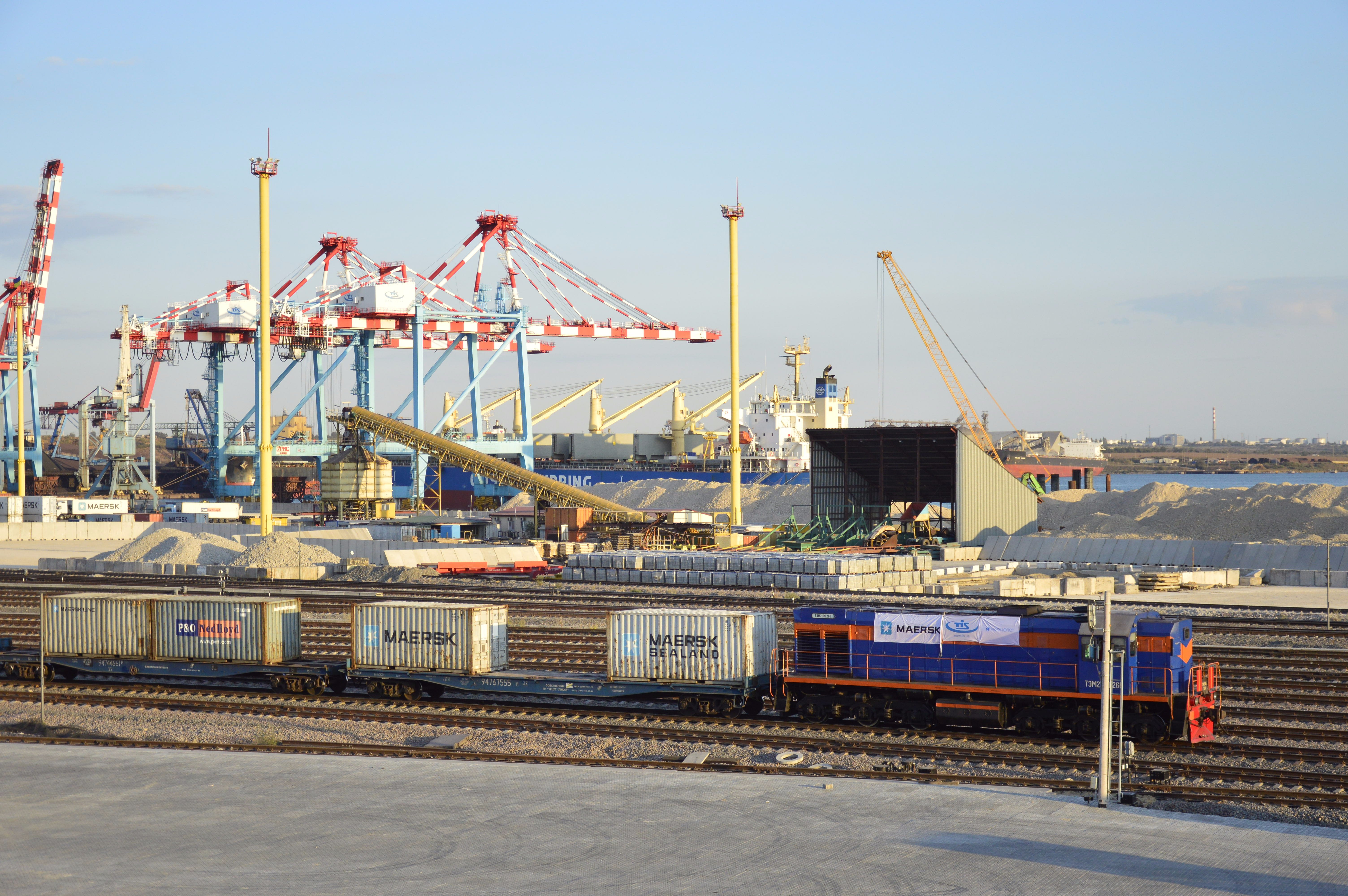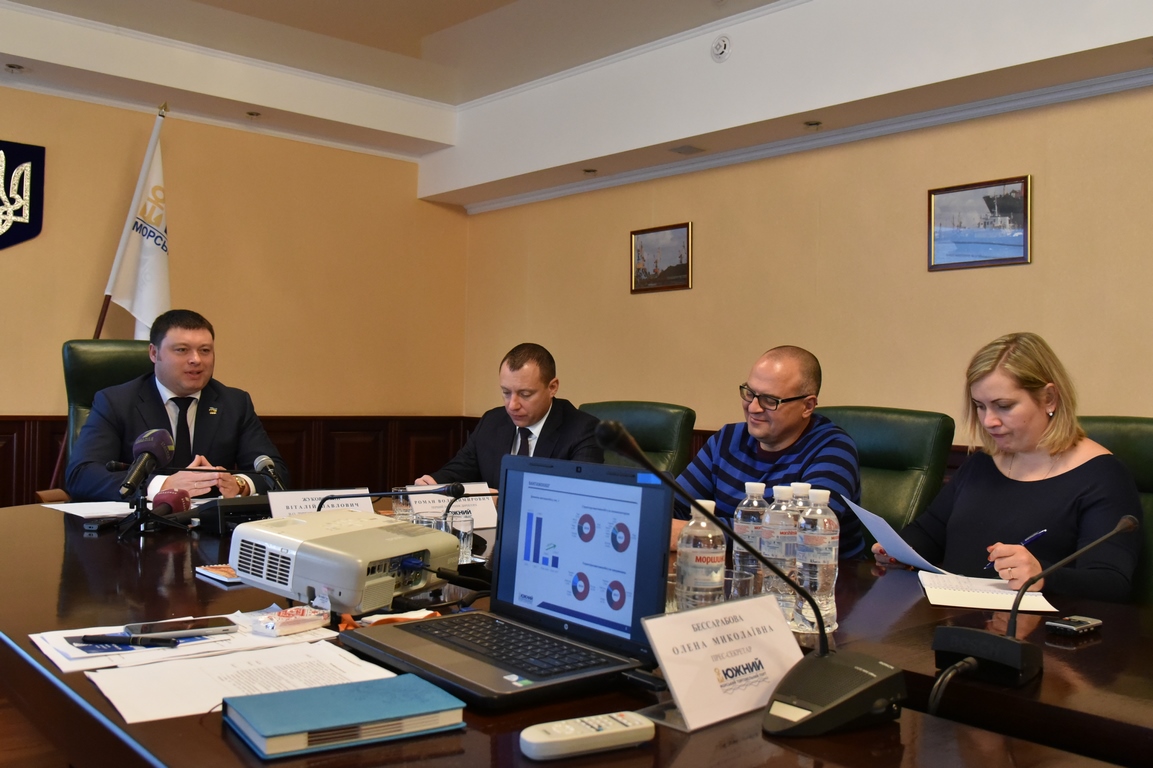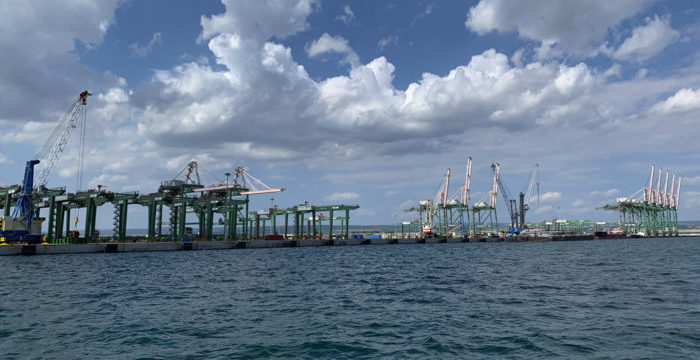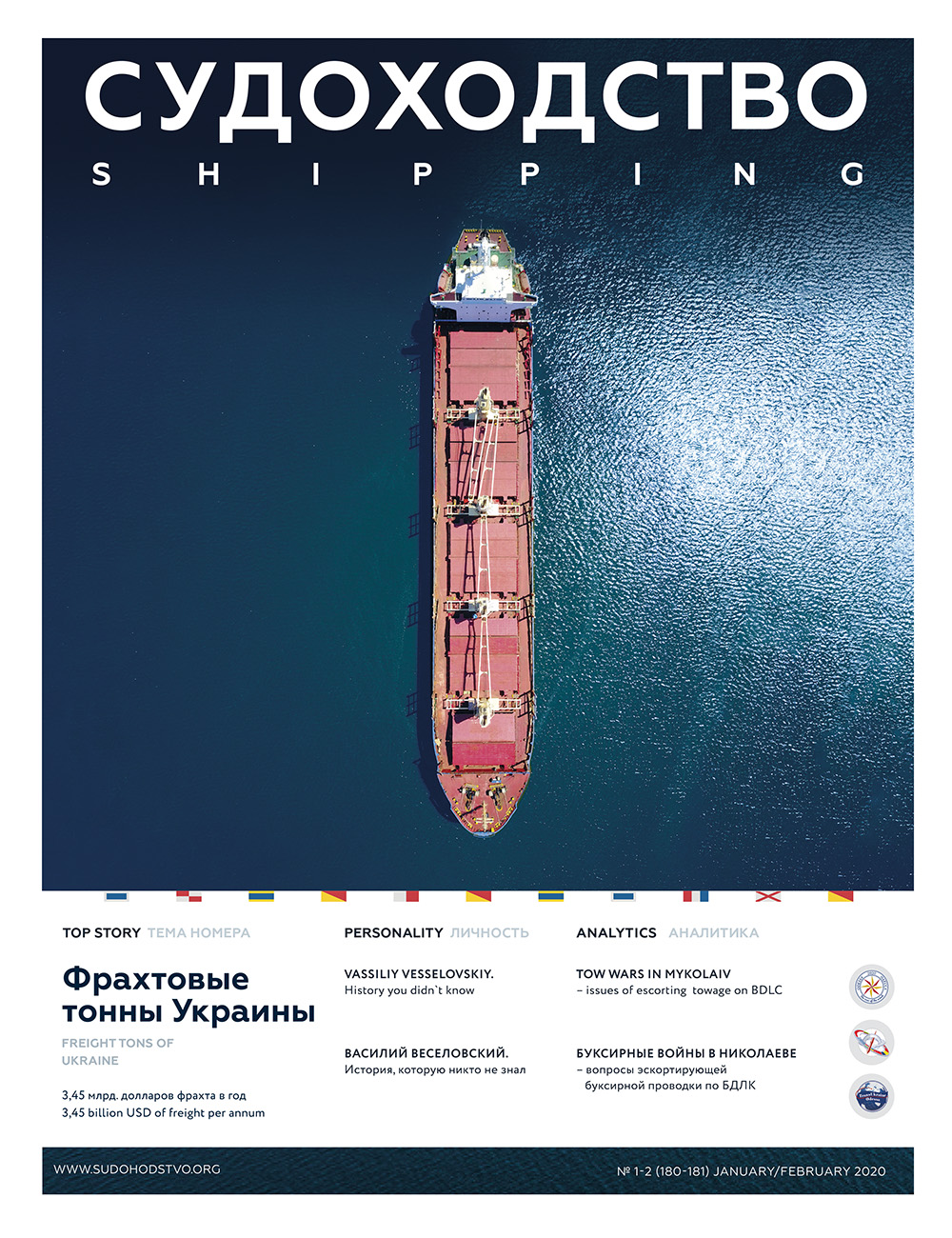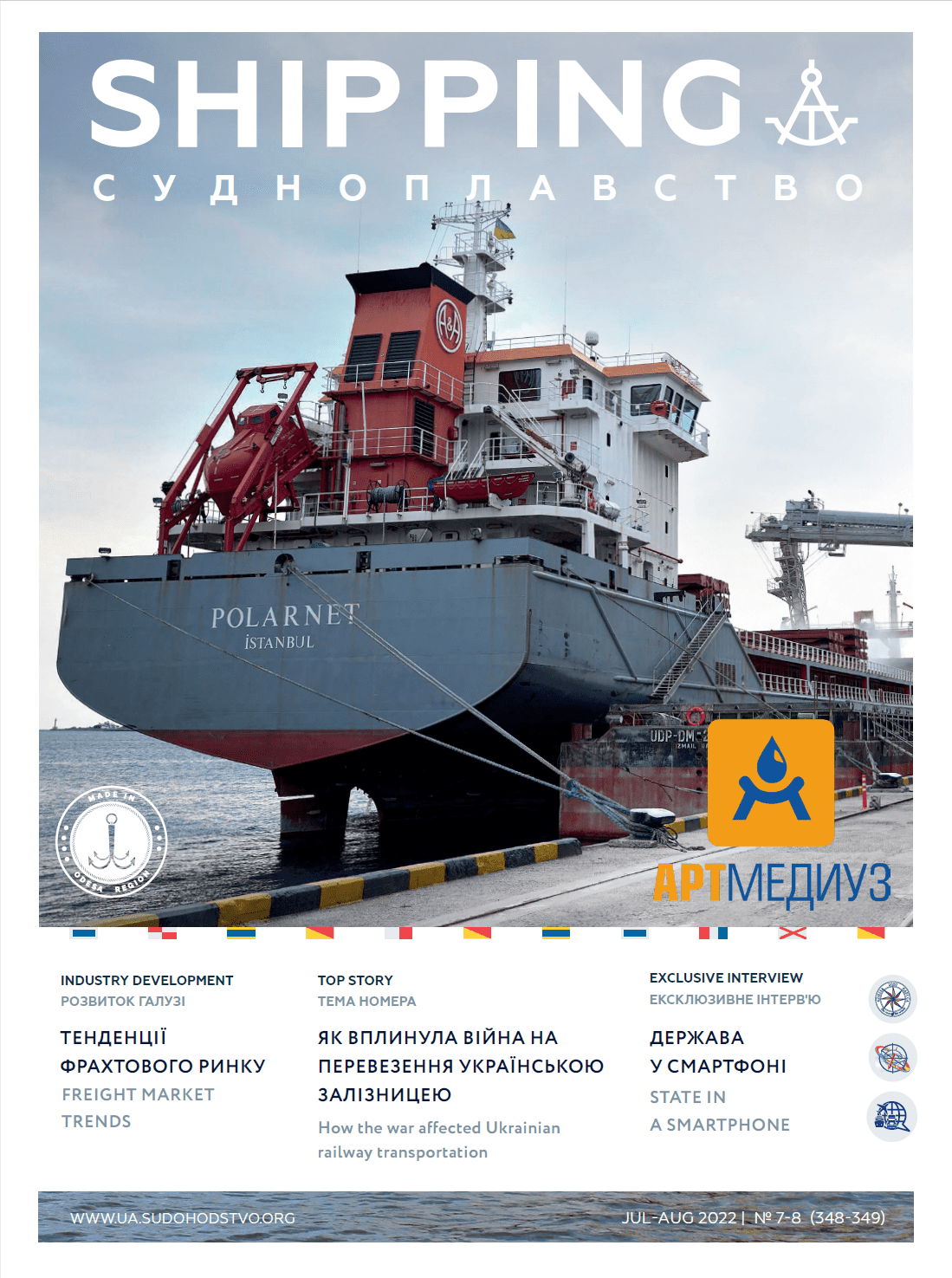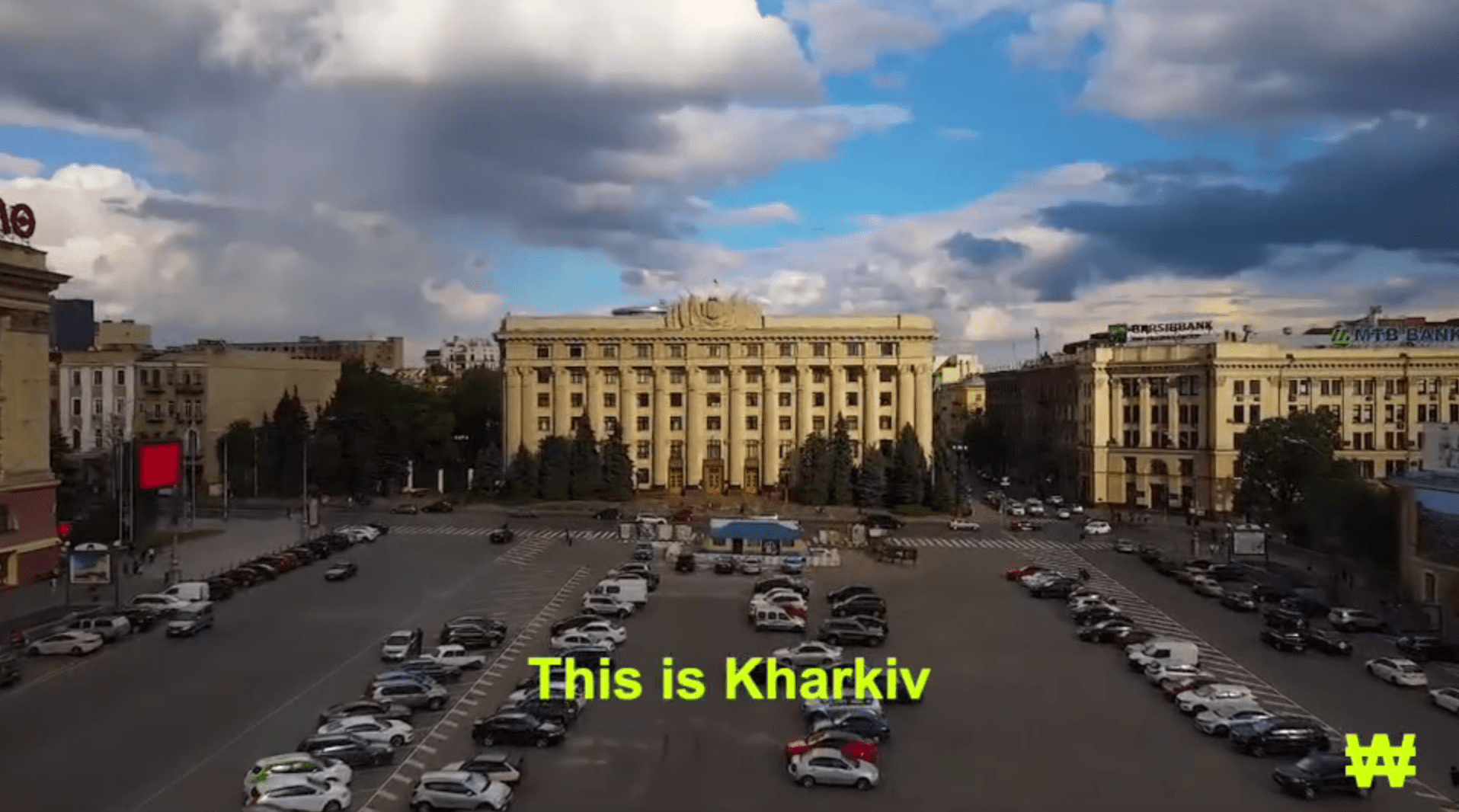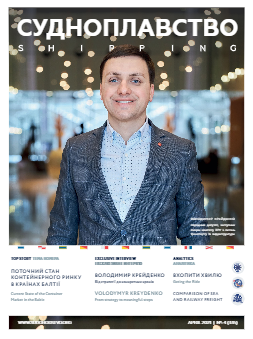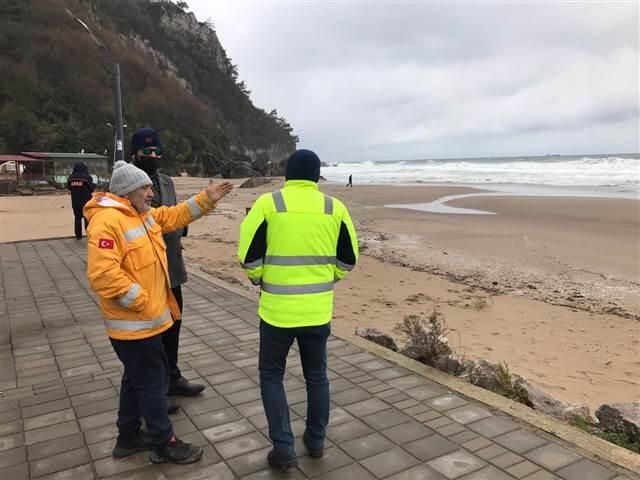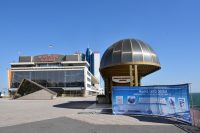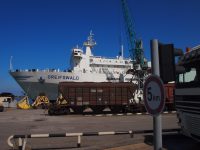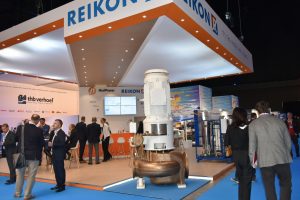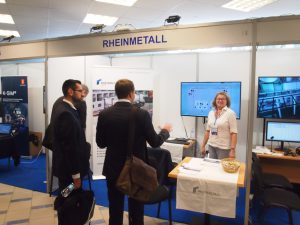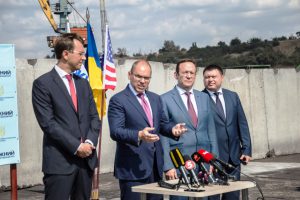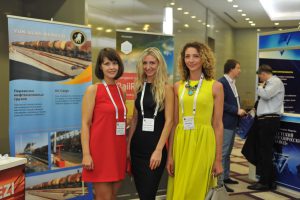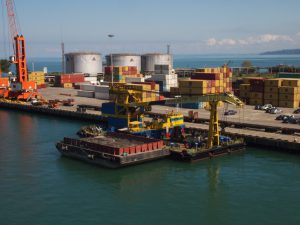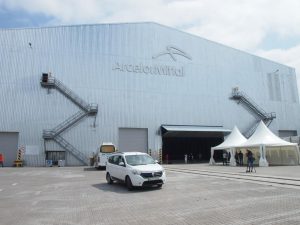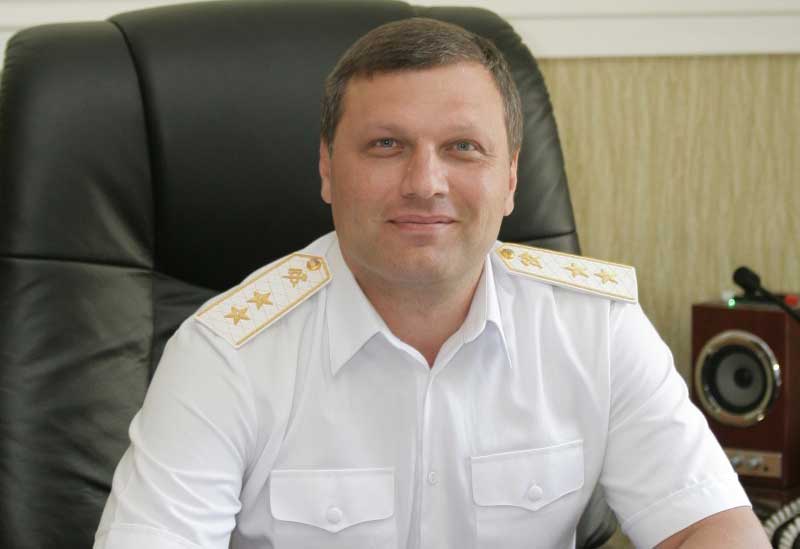
A few months ago, the Odessa Railway (OR) (branch of PJSC Ukrzaliznytsia) was headed by Vyacheslav Yeryomin. What is the current specifics of the Railway, how “smooth” are the relations between the railways and the seaports in Ukraine, what is the problem of tariffs for freight transportation, where the rational kernel of the railway sector reform is – this and much more, told by V.Yeryomin to the “SHIPPING”.
Vyacheslav Yeryomin. Born on January 15, 1973 in the family of railway workers. 1990-1995 studied at the faculty of traffic management of the Kharkov State Academy of Railway Transport.
Began his career as a central station attendant of the Yasinovataya station of the Donetsk Railway (DR), where he also worked as a station dispatcher.
In the course of career held such positions:
— Auditor of the department of Transportation Service of the Road Transportation Control Center of the DR (1997);
— Deputy Chief of the Yasinovataya station for technical work, chief engineer of the Yasinovataya station of the DR (1999);
— the Head of Mushketovo station of the DR (2002);
— the Head of Cargo Operations Department of the Transport Service of the DR (2003);
— Deputy Head of the Transportation and Commercial Services Department of OR (2007);
— First Deputy Head of the Odessa Directorate of railway transportation (2008);
— Head of the Transportation Service of the OR (2011);
— Head of the Ilyichevsk-Ferry station of OR (2014);
— First Deputy Head of the OR (2015).
From April 2016 to April 2017, held the post of the First Deputy Head of the Odessa Railway branch of PJSC Ukrzaliznytsia.
In April 2017 Vyacheslav Yeryomin became the director of the regional branch of the Odessa Railway PJSC Ukrzaliznytsia, according to the results of an open selection of candidates for the positions of directors of regional branches of PJSC Ukrzaliznytsia, which was held for the first time in the history of the company.
Has a number of awards, among which: Honorary Diploma of the State Administration of Railway Transport of Ukraine; Honorary Diploma of the Cabinet of Ministers of Ukraine; award pin “Honorary Railroader”; The sign “Railway Glory” of the third degree.
— What is the specificity of the Odessa Railway? How is it different from other branches of PJSC Ukrzaliznytsia?
— Each road, each branch has its own specifics. I was lucky to work on two of them. On the OR everything is built in such a way that the priority is given to the seaports. It is so historically formed, because the main settlements were formed near the sea. And in the local mentality, this moment is already laid – that the priorities of the seaports should be taken into account first. And those who use their services, who transport cargo through the ports, must have some definite approach from the railroad. When I came here to work, I came across this at every step and at first it was unusual. Of course, I fully understand that seaports are a very large segment of the economy. Although I note that we still need to support all enterprises that are serviced by the Odessa Railway, in equal measure.
— It’s not a secret that in the relations between the maritime and railway industries there are also “roughnesses”, for example, the problem with the increase of tariffs for freight transportation by rail. How do we solve this issue today – to mutual benefit?
— With this we again turn to the national issue. For example, I come to the governor and say: “We will soon disrupt the commuter traffic, there will not be anything to go on. We do not have the financing.” And, I’m not talking about a specific governor, this is the situation almost everywhere in the country. And they consider the issue socially: tariffs for people cannot be raised. Then we say: let’s raise tariffs for freight traffic, and due to this we will cover and subsidize the passenger ones. But then business starts to resent, ports including: “Why do we have to pay for the transportation of passengers?”. We are trying to bring the situation to a common standard, like we are taking a social burden, so you can also take a little. This is a constant conflict.
It should be taken into account that the difference between the rates of bus and railway commuter traffic is very great. At the same time, the auto carrier does not invest money in infrastructure, does not build roads and bus stations. He bought a bus and drove off! And we need a lot of money to keep the entire infrastructure that a commuter train goes by. I’m not talking about the content of the train itself. Electricity, for example, has much grown in recent years, as well as the land tax.
And considering the fuel. When buying diesel fuel – in the excise collection, money is laid, which should go to restore roads. And we buy diesel fuel in order to go by rail, and we pay excise duty so that this excise goes for the construction of roads!..
— Is it possible to settle this issue at the legislative level?
— Now they are trying to experiment in the Lviv region, where they will monetize the benefits. But this is like one of the options … Note that in the whole world there is not a single country (no matter how rich it is!), where passenger transportation would not be unprofitable, and everywhere they are subsidized by the state. And we – for the whole existence of independent Ukraine – did not receive as grants any hryvnia, not a single one!
In this case, I’m not even talking about the privilegees. Abroad there are no privilegees, but with or without them, transportation is still unprofitable. And the beneficiaries are another expense item, which, according to the law, should always be fully compensated for, but this does not happen. Compensation has always been between 20% and 50% at different times.
— Now the reform of the railway sector in Ukraine is being held. What do you think the railway will gain, and what it will lose? How do you see the goals and results of this process?
— The main goal is to increase efficiency. When one person deals with ten directions at once, then, probably, at some stage, the effectiveness is lost. For example, earlier, the head of an enterprise with certain deputies was engaged in passenger transportation. He led the passenger, freight, suburban transport, infrastructure, dealings with law enforcement agencies, relationships for various programs, with local authorities. Now narrowly focused specialists are engaged, who are clearly responsible for passenger transportation. From the point of view of passengers, this should give its result.
Speaking of risks … Personally I see two main ones: the first is that the branch manager can lose coordination between directions. Why? Because passenger transportation is not a separate taken passenger line. We do not have separate ways for passenger transportation, there is no separate infrastructure. They use the same infrastructure used by freight, suburban. Therefore, I believe that territorially under the jurisdiction of the regional branch of the Odessa Railway, it is necessary to unite everything, coordinate the work of all the verticals that are being created.
The second one: all the same, in the process of optimizing technologies, optimizing the work of personnel for all these years, we have had a combination of functions in structural divisions. That is, we have people at the stations, for example, who can simultaneously be the cashiers that serve the freight transport, and the ticket clerks who serve the passengers. They have a clear schedule, according to which they go to the ticket office from 8 to 10 hours, and then they go to the cash register. This is such an optimization of functions, where people perform different functions in different time periods and the separation of verticals can lead to an increase in staff. Therefore, the regional branch will still try to leave these issues behind in order not to increase the staff, but to unite and coordinate such structures.
— What are the investment prospects of the Odessa Railway? How are projects implemented today within the framework of public-private partnership – like the recent cooperation with port operators, TIS and others?
— We have a lot of projects, and we continue this work. For example, at the Ksenievo station — the Illichevsk grain terminal. It is simpler in this matter: when the enterprises develop – whether it is the portside transshipment complexes, or whether it is some enterprises inside the road, inside our branch – first of all we meet with their management and determine whether they want to increase the transshipment volumes and whether the infrastructure can deal with these volumes. If not – we sit down and agree on what measures to take. This mechanism has been worked out and the dialogue is well established. Virtually everyone understands this clearly and lay the railway infrastructure in their development plans.
— How do the seaports participate in the development of port stations and access railways?
— Take for example the station in Chornomorsk. Now several variants of its development are being worked out. More precisely, the port enterprises develop themselves, at the same time they come and want to get the volumes that we can guarantee with certain upgrades of the railway development of the stations. The same thing happens with “Beregovaya” station (Yuzhny seaport). There are a lot of projects. Although, unfortunately, almost all intentions exist just in projects. At the same time, it has already been put on paper and approved. We are waiting for financing when the companies are ready.
As for the Odessa seaport, there are some minor complications. We have been trying to reconstruct the “Odessa-Port” station for a year already. But something always interfered… We perfectly understood that in order to carry out some repairs, we need to temporarily limit the flow of cargo, because we turn off not only those ways that are to be reconstructed, but also the neighboring ones – where the equipment will stand. We have been ready to do this since September 2016. But first there was a harvest – and we could not do the work, and now when we are determined that this will be the summer period of 2017, there are questions for the other participants in this process, that are not quite ready. And September is already by the head, and there will be a harvest again and, of course, a stream of cargo. I think this project will be postponed again.
— Are you a supporter of any specific format of the structure of the railway enterprise? And what would you like to see from the world experience on the railway: technology, achievements?
— In my opinion, not the structure affects the efficiency of the work. Structure is not the most important thing in efficiency. The efficiency of the work is influenced by the high-tech and energy-efficient state of the infrastructure, the rolling equipment – both tractive and wagons, passenger and everything else. Give us a separate way of passenger traffic from the freight – and we will get the speed! Give us a rolling equipment that can go at this speed!.. One can talk for a long time about how good it is in Europe with infrastructure. There if there is a high-speed way, then there must be other indicators – and the freight train will not go through it. One need to invest money. Then we will make modernization, re-equipment.
But even this is not so simple. Let’s buy from Americans, from the Chinese – it does not matter who to buy from. Tomorrow there will be questions: where to repair, where to conduct a technical inspection, where to do the service? We have no bases. For example, we bought ten ‘Hyundai’s, built a base – a whole depot, which serves them. And we can talk about specialists. After all, a person who specializes in electric locomotives VL-80, cannot know the Hyundai structure. It means that it is necessary to send people to study. Here a political decision has to be made.
— Once you said that there is some kind of passivity in the team of the enterprise. Did you mean the management members? Is there any reason to change it, bring a new – your own team?
— I have been working on the railway all my life. What is this “my team”? Did they sit somewhere in the reserve? My team is the railway workers. If I have something different in my vision, like the leader, then of course there will be relocations. But at the moment there are no movements, although I have been working for more than two months. I gathered all the leaders, I set all the specific tasks for everyone – and gave a deadline to do it all. I said: guys, everything is in your hands. When this time comes – I will ask, where we are, and after that I will draw conclusions. I have no complaints about anyone personally. I have only demands that we have to work, that we cannot go through the motions. We need the final result – and not everything should happen only from my giving. If there is no initiative from below, then you need to change something.
— How is the inventory process taking place – land, real estate of the OR?
— We have developed the appropriate schedule, we are now making an inventory of real estate and land, we determine what is in need, what is not, what we can refuse, what we can use – not in the technological process, but in the part of letting. Unfortunately, a considerable part of these processes was carried out formally. We created a Road Commission – and this work has been intensified. We find also that property which is on the double account, that is considered at the different enterprises simultaneously. At the same time, we find something that no one takes into account. We establish the land that is under foreign real estate, and we pay taxes for it. A lot of things are revealed. There are many objects, the territory is large. Where there was a seizure, we involve law enforcement.
— If we talk about the Dolinskaya-Mikolaev site, where the electrification of the tracks must be put, there also were some “nuances” with the land…
— There we plan an external power supply of the line, in part we will install supports on lands that do not belong to us. We have now worked it all out, we have transferred all the supports to the land of our choice. But where it is impossible to do this, we will work with the land owners, negotiate so that we are given the opportunity to establish these supports. Banks, as I understand it, are ready to finance this project. All technical conditions are approved both by regional energy companies and by National one – in terms of allocating to us those capacities that are needed for electrification. Perhaps, this year we will begin to do the installation of support of the contact wire on our own.
I also think that we will consider and discuss the electrification of the railways towards Izmail. As the first stage up to Artsyz.
— And a little – about you personally. How did you become a railroader?
— Almost 100% it was predetermined in advance. As I have repeatedly said, I am a hereditary railway worker. Therefore, I was growing up, in this environment, all the conversations in the family were, basically, about the railway. Holidays with parents, we also celebrated in the circle of railway workers. And the city where I was born and studied before the eighth grade, Yasinovataya, is a city of railwaymen!..

